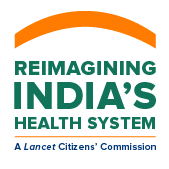In Conversation: Tila Khan, MVSc, PhD, DBT/Wellcome Trust India Alliance Early Career Fellow, School of Medical Science & Technology, Indian Institute of Technology Kharagpur
May 10, 2022

I come with basic training in veterinary sciences and PhD in viral vaccine development from Virginia Tech, USA. For my entire six year career post PhD at the Indian Institute of Technology Kharagpur, we are interested in building the evidence base for vaccine access to high risk groups such as children living with HIV, pregnant women and infants of rural West Bengal. This includes studies on access of pneumococcal conjugate vaccines and Hemophilus influenzae type B vaccines to children living with HIV. With the “Robert Austrian Research Grant” in pneumococcal vaccinology, we looked into the impact of pneumococcal vaccines on the nasopharyngeal carriage of respiratory viruses and bacteria in HIV-affected families.
With this work, I became highly interested in public health and rural healthcare. We found that respiratory infections are highly prevalent, many of which are vaccine preventable. However, until the COVID-19 pandemic there was no system in place in the primary and secondary health centers of this region for laboratory testing of respiratory viruses and bacteria. With this pandemic, we have seen how the evidence of risk of disease in pregnant women has led to the rollout of COVID-19 vaccines to pregnant women. The pandemic has also changed the mindset in India that vaccines are required across the life course including adults and elderly. Lack of laboratory documentation of disease leads to underestimation of their burden and lack of awareness among clinicians and policy makers about the need for vaccines. In the DBT/Wellcome Trust India Alliance Grant-2020, we are working on building the evidence base for maternal immunization by setting up surveillance systems for influenza, respiratory syncytial virus (RSV) and SARS-CoV-2 in different health centers of a rural district of West Bengal, for estimating the burden of respiratory pathogens in children; understanding the impact of influenza, RSV and SARS-CoV-2 in pregnant women and infants and, build the awareness about maternal immunization. We are also conducting interviews with pregnant women in District to seek out information on attitudes towards immunization and underlying knowledge of vaccine preventable respiratory infections. Together these works would build the evidence base for maternal vaccines in India.
